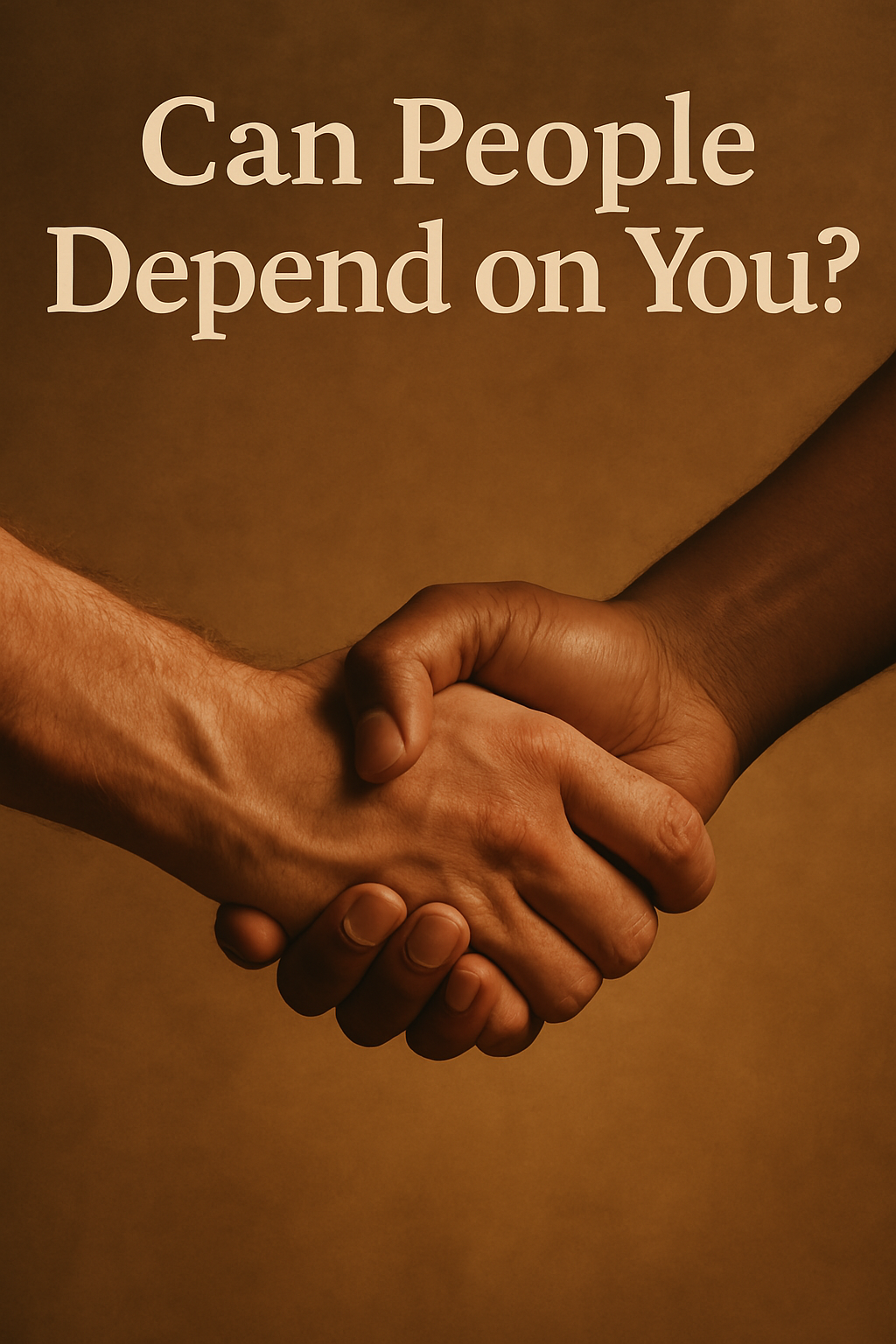
It’s often said that we should always look to God for help. There’s no friend who sticks closer than a brother, except for God Himself. Proverbs 18:24 says, “One who has unreliable friends soon comes to ruin, but there is a friend who sticks closer than a brother,” and many see this as pointing to God. We’re told to put our hope in Him alone, which is true. Yet, people still need each other. God gave us two great commandments: “Love the Lord your God with all your heart and with all your soul and with all your mind” (Matthew 22:37) and “Love your neighbor as yourself” (Matthew 22:39).
Some focus only on loving God, even waging wars in His name, while forgetting to love their neighbor. But Scripture shows us balance. St. Paul, in his letters, thanks his brothers and sisters for their help and expresses how he longs to see them (e.g., Romans 1:11-12). So, the question we must ask today is: Are we dependable? Can people trust us?
Do you have people you can share your problems with? Are you certain they won’t betray you, exploit you, or offer solutions rooted in selfishness instead of God’s wisdom? Do they pray for you in their personal time? More importantly, are you willing to become that person for others?
Exodus 32:1 – “When the people saw that Moses was so long in coming down from the mountain, they gathered around Aaron and said, ‘Come, make us gods who will go before us. As for this fellow Moses who brought us up out of Egypt, we don’t know what has happened to him.’”
In this verse, the Israelites turned to Aaron with their problem: their leader, Moses, was gone for an indefinite time, and they were lost without him. Why Aaron? They’d seen him perform miracles and speak for Moses. They revered his blessed life, and Moses had even directed them to him (Exodus 4:16). So, they shared their insecurities and desires with Aaron. But what did he do? He made a golden calf, told them to worship it, and called it the Lord. He mimicked God’s ways with sacrifices and a festival, leading them astray.
Are we like Aaron in our lives? When people come to us with their problems—perhaps because they trust us or because of our past testimony—do we point them to false idols? One Sunday, we say God healed us; the next, we credit medicine. We once called God our refuge in trouble, but later we praise money or people instead. These are the golden calves of our lives, exchanging God’s glory for lesser things. Aaron made the Israelites a laughingstock before God’s enemies. When people come to us, do we offer cunning, self-serving solutions, manipulating their trust for our gain?
1 Kings 22:5-8 – “But Jehoshaphat also said to the king of Israel, ‘First seek the counsel of the Lord.’ So the king of Israel brought together the prophets—about four hundred men—and asked them, ‘Shall I go to war against Ramoth Gilead, or shall I refrain?’ ‘Go,’ they answered—“for the Lord will give it into the king’s hand.’ But Jehoshaphat asked, ‘Is there no longer a prophet of the Lord here whom we can inquire of?’ The king of Israel answered Jehoshaphat, ‘There is still one prophet through whom we can inquire of the Lord, but I hate him because he never prophesies anything good about me, but always bad. His name is Micaiah son of Imlah.’”
Here, Ahab and Jehoshaphat sought guidance from prophets. Most were deceived by a lying spirit, giving false assurance. Why? Their shallow relationship with God left them vulnerable. But Micaiah, rooted in his closeness to God, discerned the truth and spoke it boldly. When people come to us, our own relationship with God is tested. If we pray without seriousness, deceiving spirits can mislead us and those who trust us. We must guard ourselves to truly help our brothers and sisters. As 1 Timothy 4:16 says, “Watch your life and doctrine closely. Persevere in them, because if you do, you will save both yourself and your hearers.” Our words and actions can save us and those who hear and see them.
Ruth 2:10-12 – “Then Ruth fell on her face, bowing to the ground, and said to him, ‘Why have I found favor in your eyes, that you should take notice of me, since I am a foreigner?’ Boaz replied, ‘I’ve been told all about what you have done for your mother-in-law since the death of your husband—how you left your father and mother and your homeland and came to live with a people you did not know before. May the Lord repay you for what you have done. May you be richly rewarded by the Lord, the God of Israel, under whose wings you have come to take refuge.’”
Ruth and Naomi turned to Boaz, their kinsman-redeemer, for help. Naomi knew his character, saying in Ruth 3:18, “Wait, my daughter, until you find out what happens. For the man will not rest until the matter is settled today.” Boaz was dependable—a man who wouldn’t rest until he’d solved their problem. Can people depend on us like that? Or do we dismiss others’ struggles, laughing at their pain because it doesn’t affect us? Be trustworthy to people, and faithful to God—that’s a life He can use.
God calls us to be trustworthy, not offering advice that benefits us or satisfies our cunning desires. He wants us to provide His word of instruction for others’ lives—people He and they can trust. Can we become dependable, prayerful warriors, giving godly solutions to those who turn to us? Can we be true to God and to people? The trusted and dependable are the sharpest arrows in the QUIVER OF GOD.



May God bless you all…
Yes. I am
Proverbs 3:5-6 (“Trust in the Lord with all your heart”), Proverbs 16:3 (“Commit to the LORD whatever you do”), and Revelation 21:5 (“Behold, I am making all things new. Also he said, ‘Write this down, for these words are trustworthy and true.'”).
Thank you Anugrah for the wonderful article and thoughts from the Bible